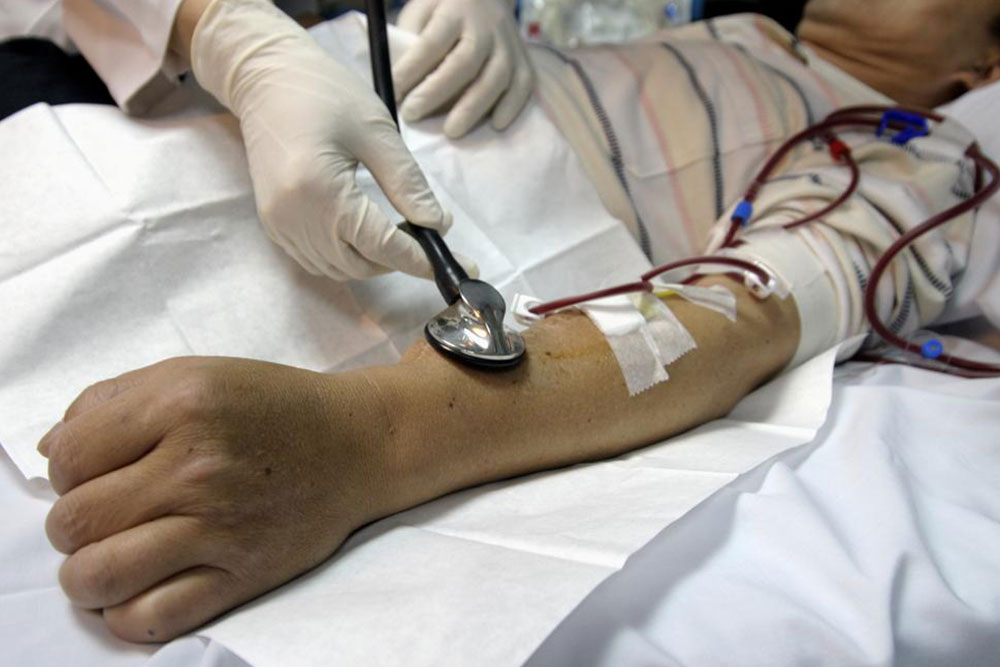5 useful things a person undergoing kidney dialysis should know
Chronic kidney disorder or kidney disease progresses through stages. The stages of kidney failure start from Stage 1, which is a mild form of kidney problem, and then proceeds to Stage 5. Kidney dialysis is required after the fourth stage of kidney failure. In some cases, the progress of kidney failure may not be rapid. So, the affected person goes without kidney dialysis for years. However, in case of rapid deterioration of kidney function, kidney dialysis or transplant or both might be required.

Kidney dialysis replaces the kidney’s functions and helps a person with kidney failure to live a relatively healthier life. Since dialysis becomes a crucial part, it is necessary to stay informed about the various aspects of this treatment in order to make informed decisions before dialysis and even while undergoing dialysis. Here are a few useful things to know:
- Kidney dialysis treatment options : Have a careful and detailed discussion with your doctor regarding the treatment plan. Decide on the type of dialysis you want and whether you like to opt to undergo dialysis in a hospital, in a dialysis center or within the comforts of your home. Take into consideration your medical condition and financial abilities.
- Comparing facilities of different dialysis centers : If you decide to undergo dialysis at a dialysis center, you have the choice of opting for a center that provides facilities you are comfortable with and those that you can afford. The Medicare website has detailed information on around 5600 dialysis centers located across the country. You can make an informed decision by comparing multiple centers’ geographical location, the facilities provided by each clinic, quality measures, availability of evening shifts, the number of dialysis stations and so on.
- Traveling and working during dialysis : Dialysis treatments are standardized everywhere. With dialysis centers available across the country as well as abroad, a person on dialysis can travel freely. However, it will require meticulous planning regarding looking for quality dialysis centers and booking appointments. Also, once a person gets used their dialysis routine, they can go back to work or school by working around their dialysis schedule.
- Insurance while on dialysis : People who have end stage renal failure are eligible for health insurance under Medicare. Discuss with your healthcare provider to know if any insurance is available in your case.
- Known risks of kidney dialysis : Although kidney dialysis might be necessary, it is important to be aware of the various risks and side effects associated with this treatment to be completely prepared for the future. Dialysis may cause kidney cyst symptoms, anemia, low blood pressure, sleep disorder, muscle cramps, high blood sugar, itching and so on.